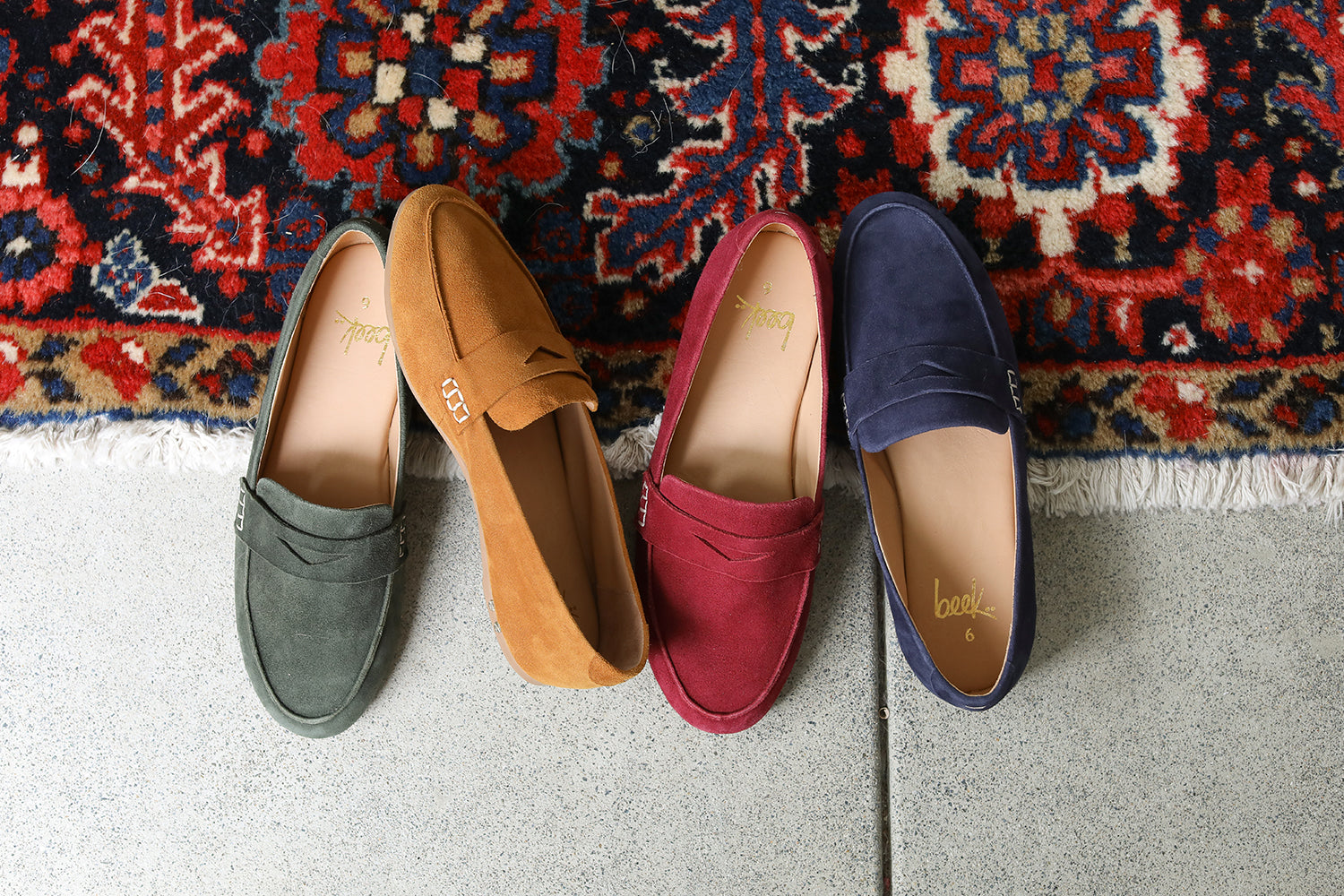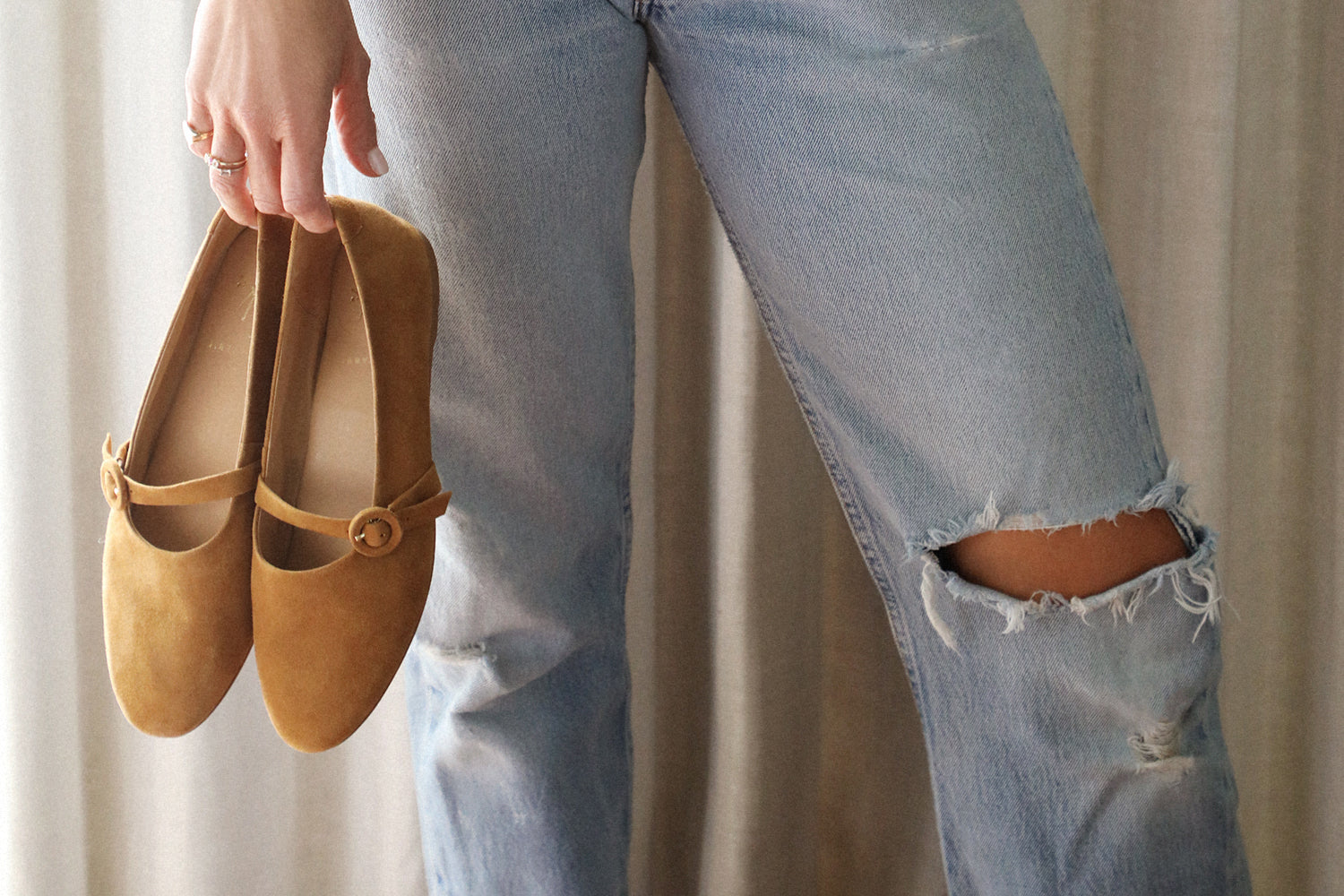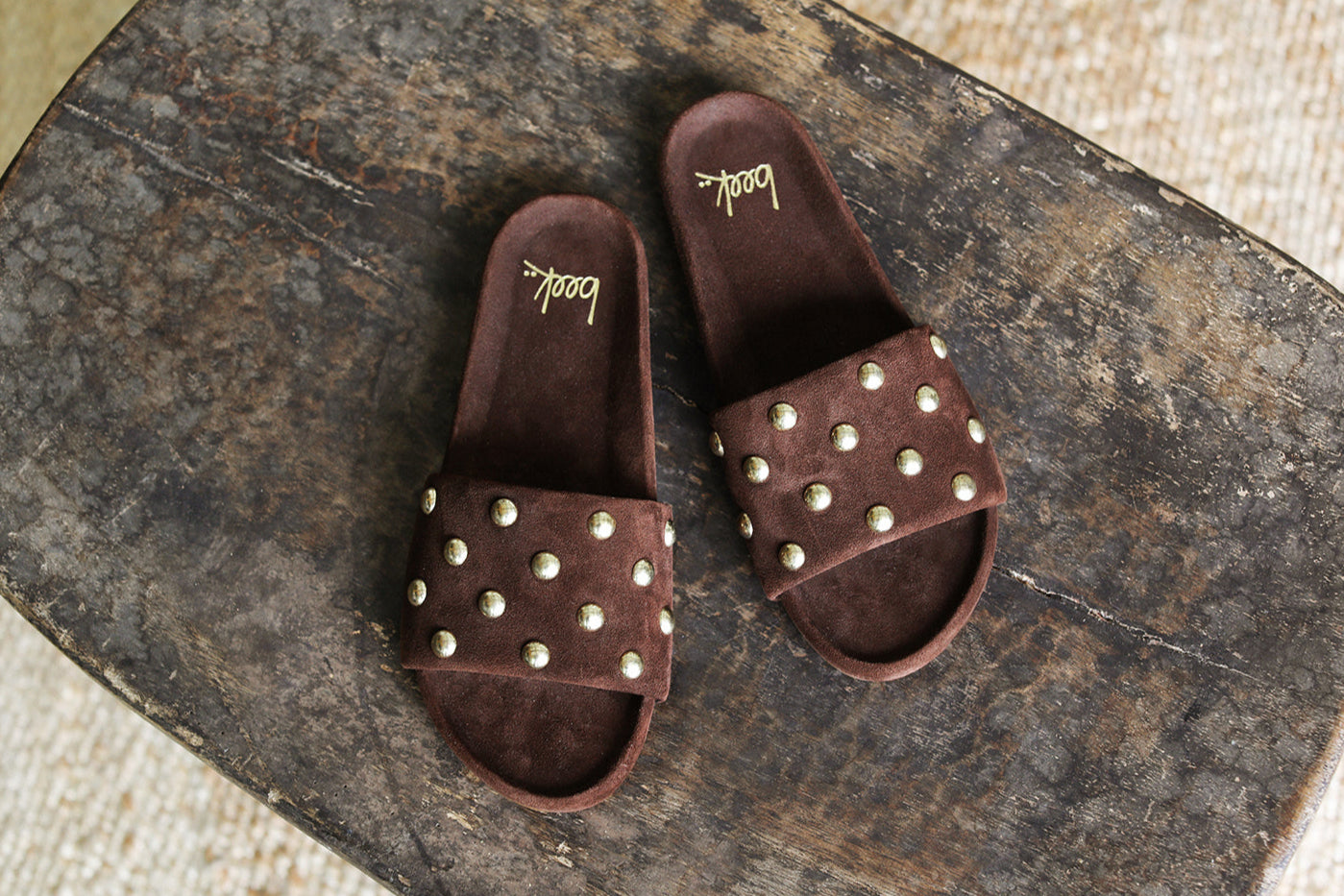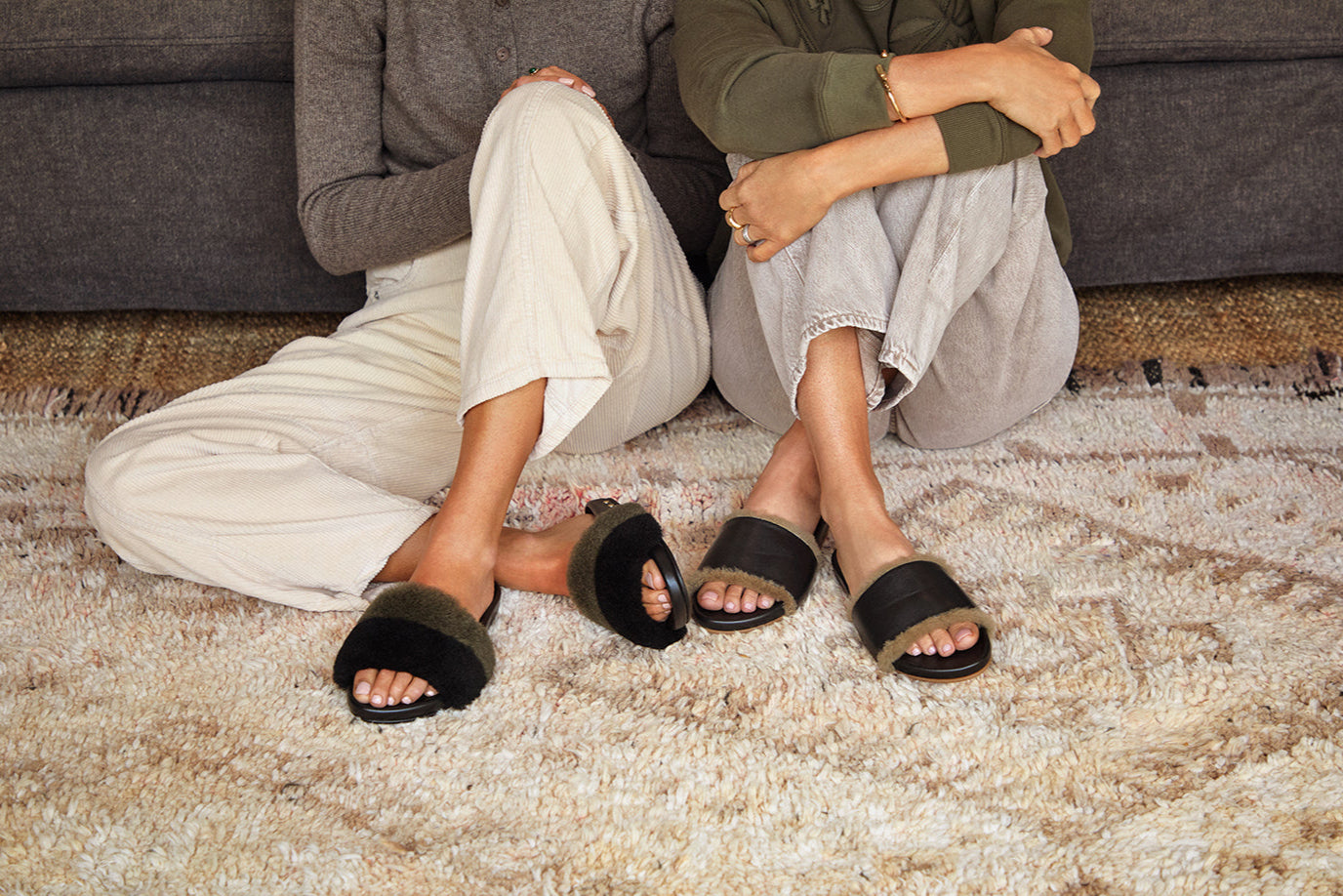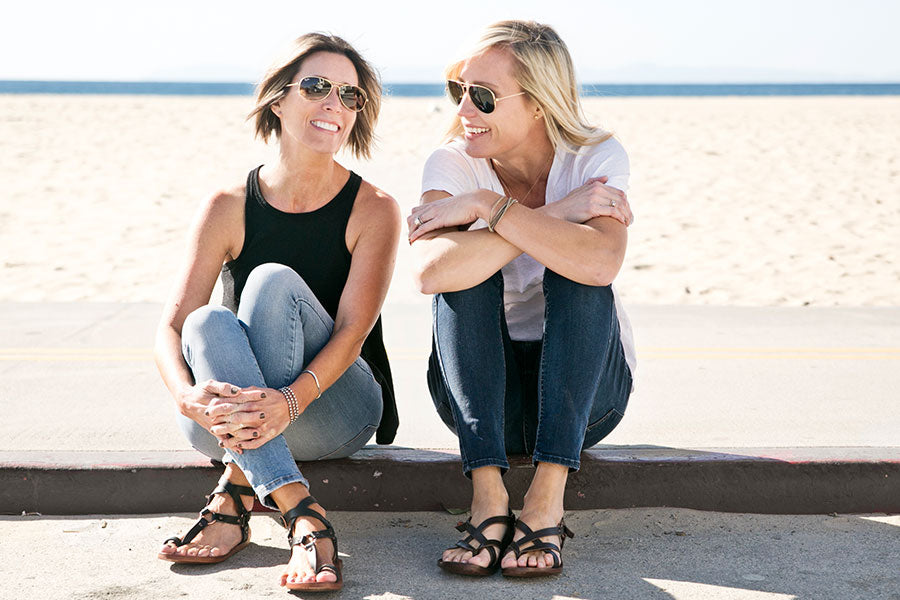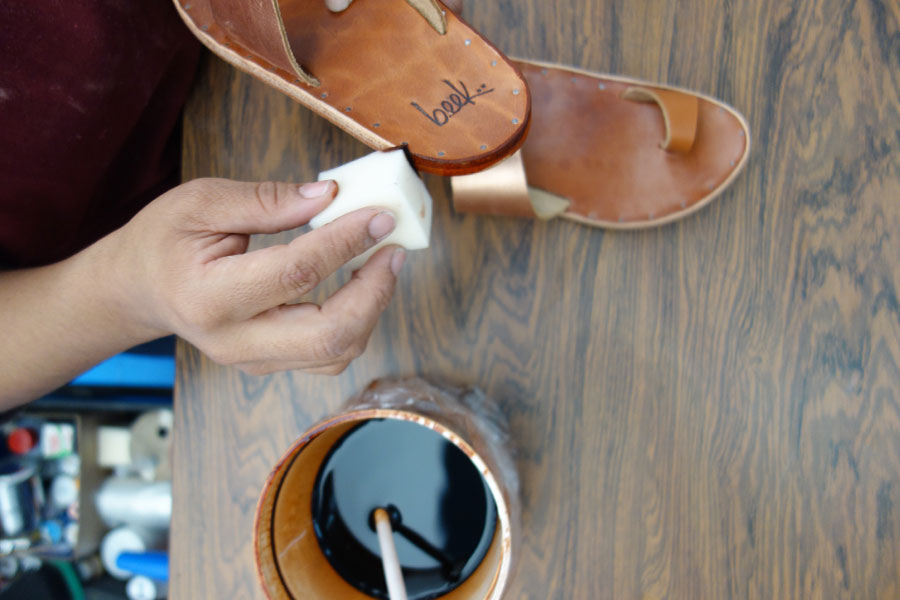Our Footprint
To our customers:
Let’s talk sustainability for a moment (it’s always on our minds).
Most important, of course, is our leather. All of our leather is degradable, recyclable and exclusively a byproduct of cattle and sheep raised for meat (it’s better for the environment to use this leather than to dispose of the hides).
Our all-leather construction uses only vegetable-tanned leathers, the most sustainable method available. It comes from tanneries gold-certified by the Leather Working Group (LWG), which we’re told is pretty special. (By the way, the TPR heel piece, is also 100% recyclable.)
Our wrapped leather construction is about 50% sustainable (memory foam, unfortunately, cannot be recycled) with an outsole that’s 100% recyclable and 40% recycled. (The soft leather in which we wrap our footbeds requires a different tanning process, but it’s degradable and recyclable.)
Why not use synthetic leather, you ask? Please, oh please, don’t get us started! Our beautiful leather is much more sustainable than polyurethane (PU), which is 100% plastic—made from either petroleum byproducts or “natural gas,” both of which are fossil fuels and bad for the environment.
As for packaging, all of our carton and box materials are recycled, except for the wax coating on the lining and tissue (it’s necessary to prevent dusting onto the shoes). But we’re hot on the trail of other options.
Our shoe boxes are super cool, we’ll tell you why: They’re made from 100% recycled paper. They fold down, which means they took up less space in transit (so less fossil fuels burning on trucks to get here). You can fold them down again and recycle them!
What about transportation, you ask? We use no cargo ships and avoid relying solely on air freight so our carbon footprint is half from trucking in from nearby Mexico and half from being flown in from Brazil.
We care about the artisans who make our shoes! We care deeply about the artisans who make our shoes. The factories we work with in Brazil are actively pursuing local certification standards. Every tannery and factory we partner with is highly conscious of its environmental and social impact.


